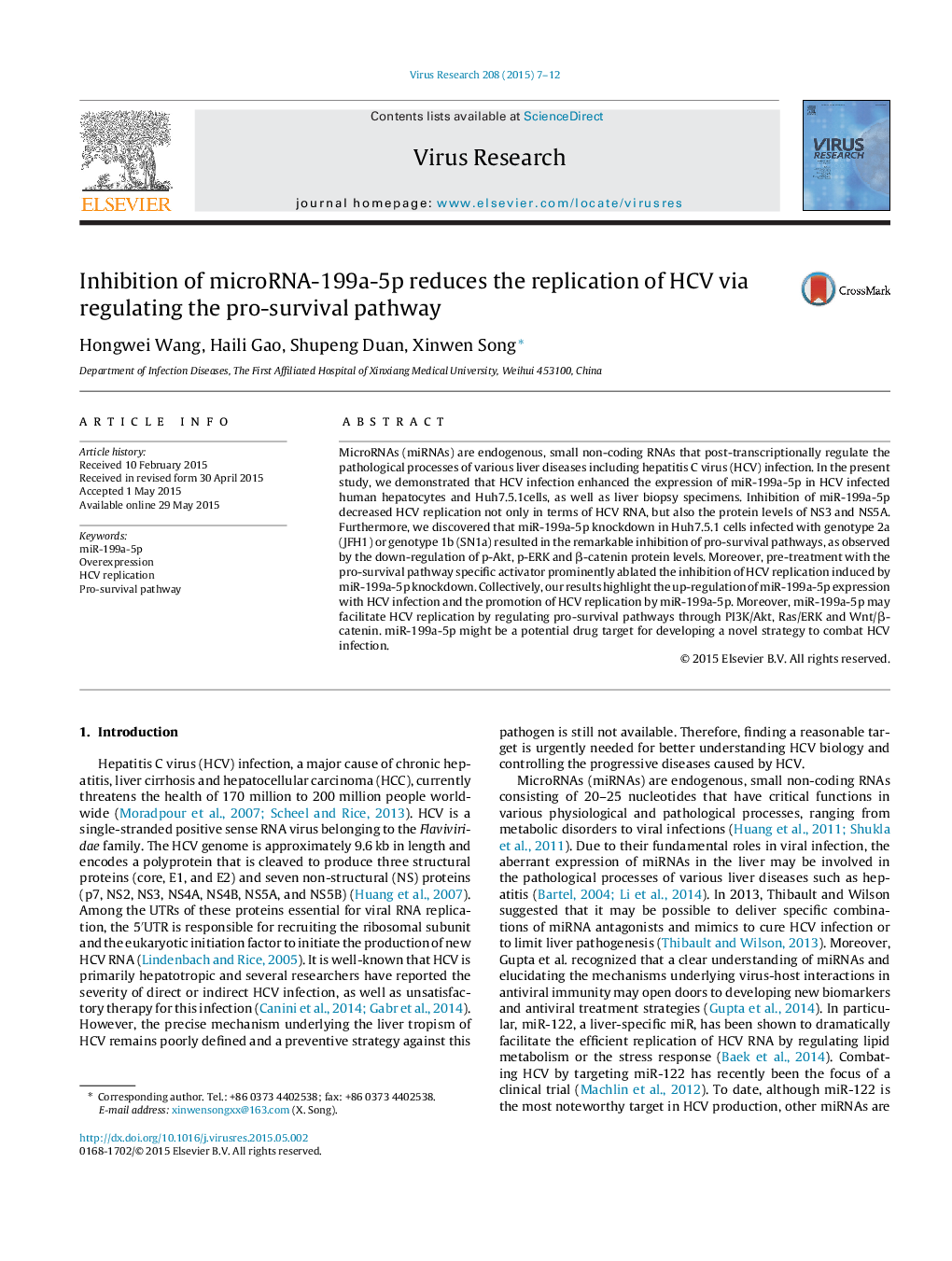| Article ID | Journal | Published Year | Pages | File Type |
|---|---|---|---|---|
| 3428108 | Virus Research | 2015 | 6 Pages |
•miR-199a-5p was overexpressed during HCV infection.•miR-199a-5p enhanced HCV replication by prosurvival pathway.•miT-199a-5p down-regulation suppressed HCV replication.
MicroRNAs (miRNAs) are endogenous, small non-coding RNAs that post-transcriptionally regulate the pathological processes of various liver diseases including hepatitis C virus (HCV) infection. In the present study, we demonstrated that HCV infection enhanced the expression of miR-199a-5p in HCV infected human hepatocytes and Huh7.5.1cells, as well as liver biopsy specimens. Inhibition of miR-199a-5p decreased HCV replication not only in terms of HCV RNA, but also the protein levels of NS3 and NS5A. Furthermore, we discovered that miR-199a-5p knockdown in Huh7.5.1 cells infected with genotype 2a (JFH1) or genotype 1b (SN1a) resulted in the remarkable inhibition of pro-survival pathways, as observed by the down-regulation of p-Akt, p-ERK and β-catenin protein levels. Moreover, pre-treatment with the pro-survival pathway specific activator prominently ablated the inhibition of HCV replication induced by miR-199a-5p knockdown. Collectively, our results highlight the up-regulation of miR-199a-5p expression with HCV infection and the promotion of HCV replication by miR-199a-5p. Moreover, miR-199a-5p may facilitate HCV replication by regulating pro-survival pathways through PI3K/Akt, Ras/ERK and Wnt/β-catenin. miR-199a-5p might be a potential drug target for developing a novel strategy to combat HCV infection.
